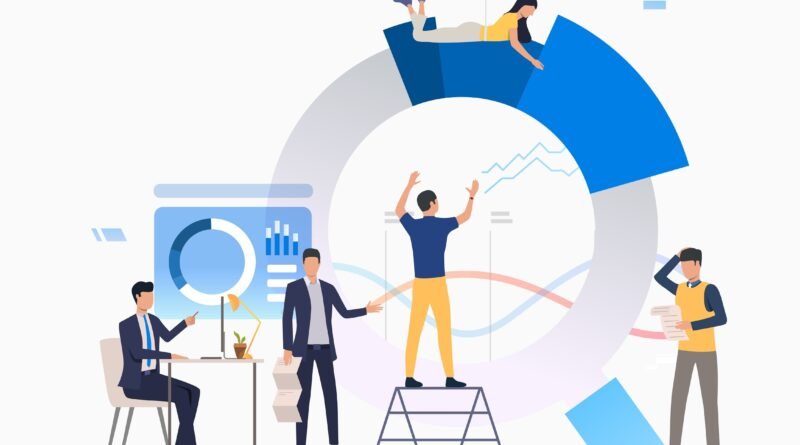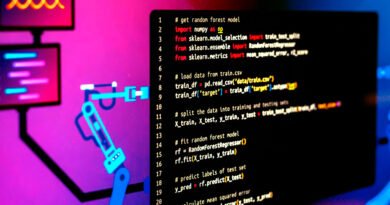AI Project Management Tools: Transforming Traditional Project Management
Welcome to the cutting edge of organizational excellence, where AI project management tools rapidly emerges as the game-changer in a world that craves efficiency. Gone are the days of traditional project management; we stand on the precipice of a new era where AI for project management isn’t just an add-on; it’s becoming the core around which successful projects revolve.
Embark on a compelling journey with us as we dive deep into the trans-formative alliance of artificial intelligence and project strategy. AI and project management are crafting a narrative of success, marked by intelligent automation and predictive precision that was once the stuff of sci-fi dreams. In the pages that follow, AI project management tools will no longer be mere buzzwords but beacons that guide you through the maze of deadlines, resources, and deliverables with a finesse that is both remarkable and revolutionary.
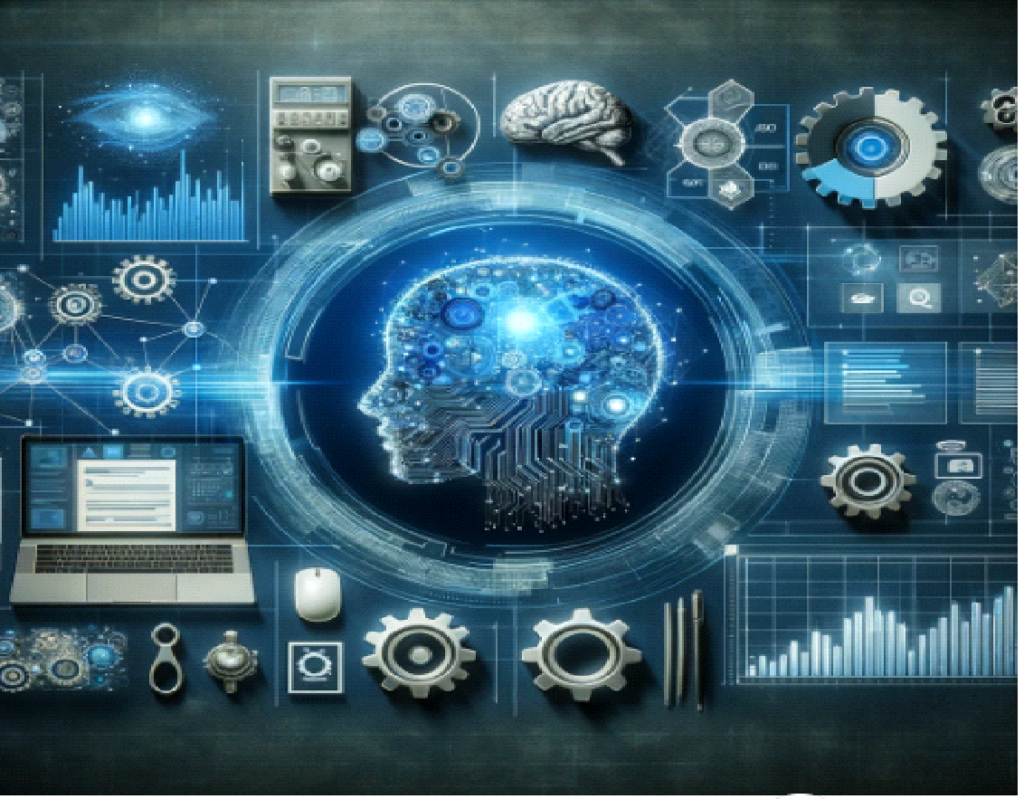
Are you ready to redefine the boundaries of project management? Because AI is set to take you there.
What is AI Project Management?
AI project management melds artificial intelligence with traditional project handling, transforming the way projects are planned, executed, and tracked. It empowers teams with machine learning and predictive analytics to enhance decision-making and efficiency.
With AI project management tools, projects evolve from guesswork to precision, adapting in real-time to changes and offering insights for strategic direction. This approach automates mundane tasks, optimizes resources, and forecasts outcomes, streamlining project workflows and boosting productivity.
Traditional methodologies:
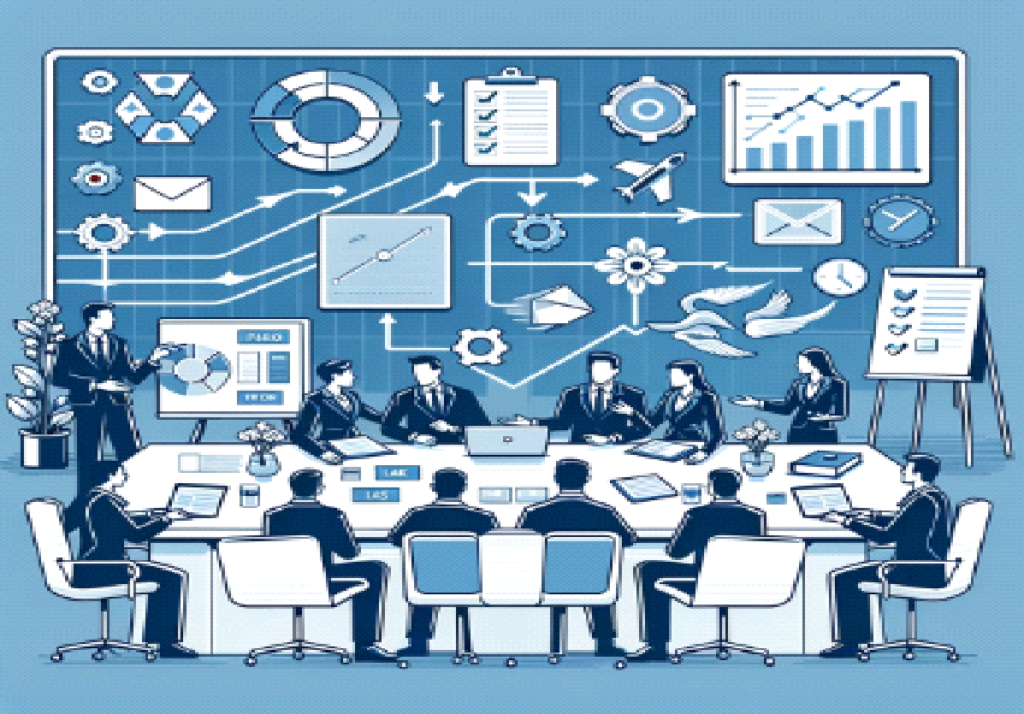
- Predicting Outcomes: AI can forecast project trajectories, allowing managers to anticipate risks and opportunities long before they manifest.
- Optimizing Resources: Through AI, teams can allocate their resources more efficiently, ensuring the right skills are employed at the correct times.
- Automating Routine Tasks: AI excels in taking over the repetitive, time-consuming tasks that often bog down project teams, freeing human minds for creative and strategic pursuits.
- Enhancing Communication: With advanced AI tools, communication becomes streamlined, with chatbots and virtual assistants providing instant responses and updates.
- Improving Collaboration: AI platforms can facilitate better teamwork by connecting disparate systems and providing a unified view of project goals and progress.
5 Benefits of AI in Project Management
AI in project management offers a multitude of advantages that cater to the dynamic needs of modern-day projects:
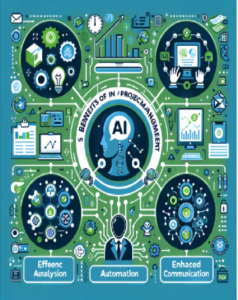
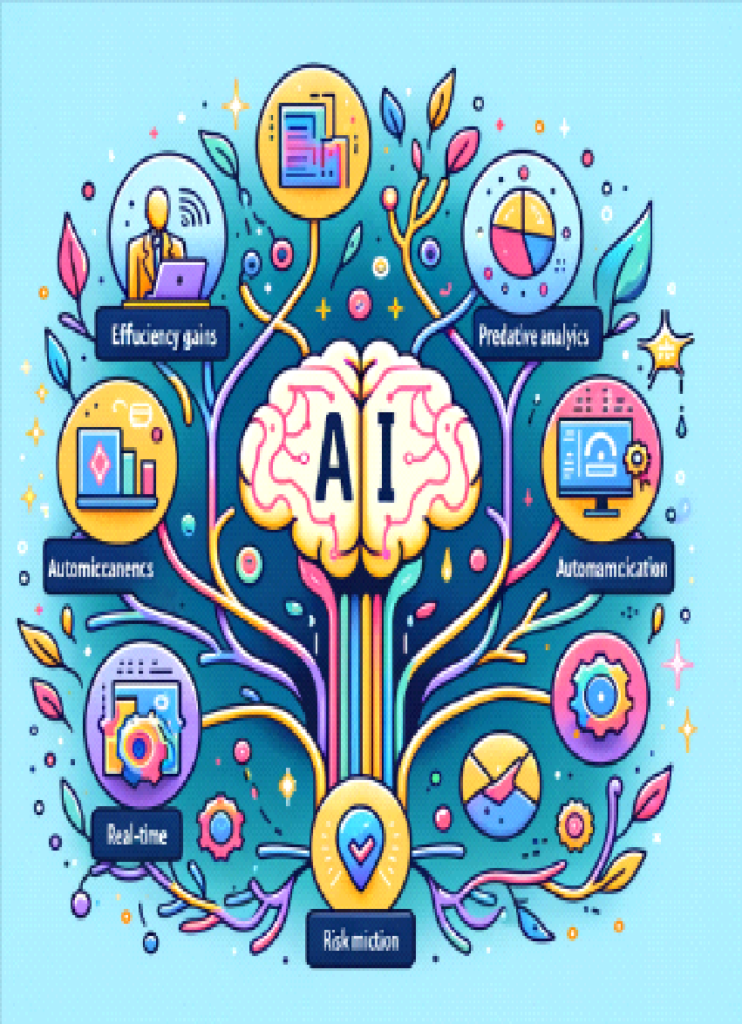
- Efficiency: Automating routine tasks with AI reduces time spent on administrative work, allowing project managers to focus on strategic decision-making and leadership.
- Accuracy: AI algorithms process data highly, leading to more accurate forecasting, budgeting, and resource allocation.
- Risk Management: AI’s predictive analytics can foresee potential issues, giving teams the foresight to mitigate risks proactively.
- Enhanced Collaboration: AI tools can improve team collaboration by providing centralized communication and data-sharing platforms.
- Informed Decision-Making: With real-time data analysis, AI delivers actionable insights that drive more intelligent, data-driven decisions.
Key Features of AI Project Management Tools
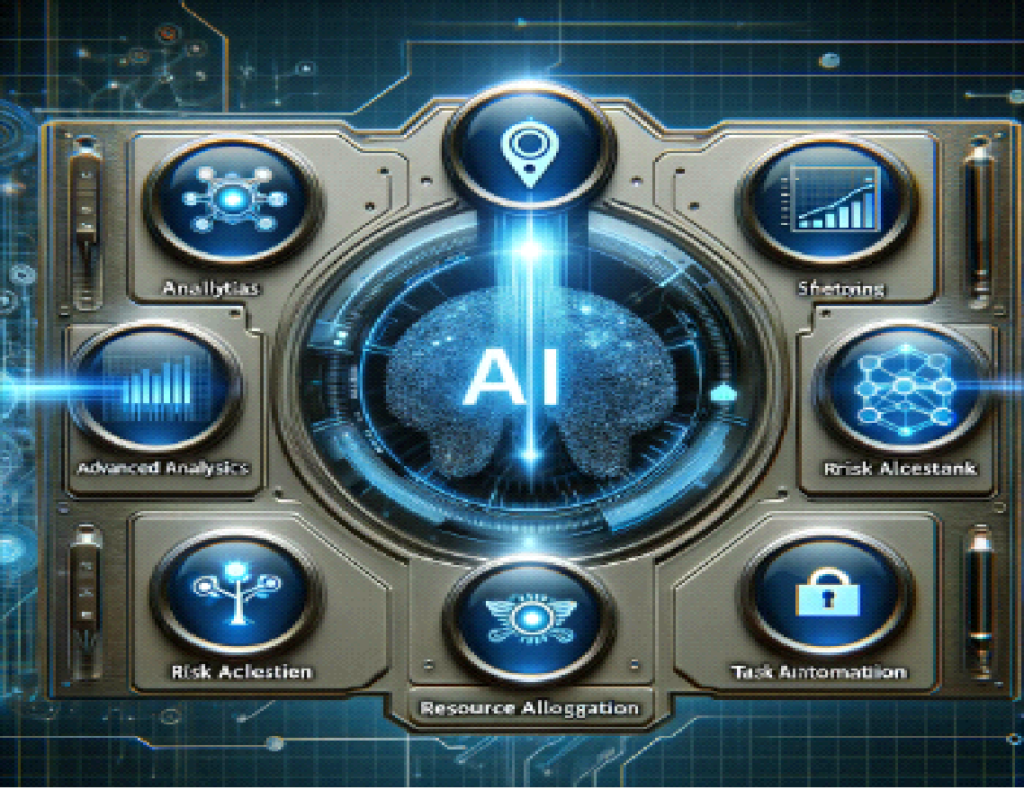
AI project management tools stand out for their innovative features that streamline and enhance the project management process:
- Predictive Planning: These tools analyze historical data to predict project timelines and outcomes, helping to plan more accurately.
- Resource Optimization: AI optimizes the allocation of resources, ensuring projects are well-staffed, and budgets are effectively utilized.
- Automated Scheduling: Tasks are automatically scheduled based on priority and resource availability, keeping projects on track.
- Real-time Analytics: Instant project data analysis allows for real-time adjustments and data-driven decision-making.
- Risk Assessment: AI tools continuously monitor project parameters to identify and assess potential risks early on.
- Intelligent Automation: Routine tasks are automated, reducing errors and freeing up human resources for critical thinking and creativity.
- Enhanced Communication: Built-in chatbots and collaborative interfaces facilitate seamless communication among team members.
How AI is Changing Roles in Project Teams
The advent of AI in project management is not just reshaping processes but also redefining the roles within project teams:
- Project Managers are evolving from taskmasters to strategic leaders. AI handles day-to-day tasks, freeing managers to focus on big-picture strategy and innovation.
- Team Members benefit from AI’s insights, allowing a more focused approach to their functions. Automating repetitive tasks enables them to engage in more complex, value-added work.
- Data Analysts find a new ally in AI, which can process and analyze data at a scale impossible for humans, enhancing their capability to provide deeper insights.
- Risk Managers leverage AI’s predictive analytics to identify potential risks ahead of time, enabling proactive rather than reactive management.
- Resource Managers use AI to optimize the allocation of human and material resources, ensuring that the right assets are available at the right time.
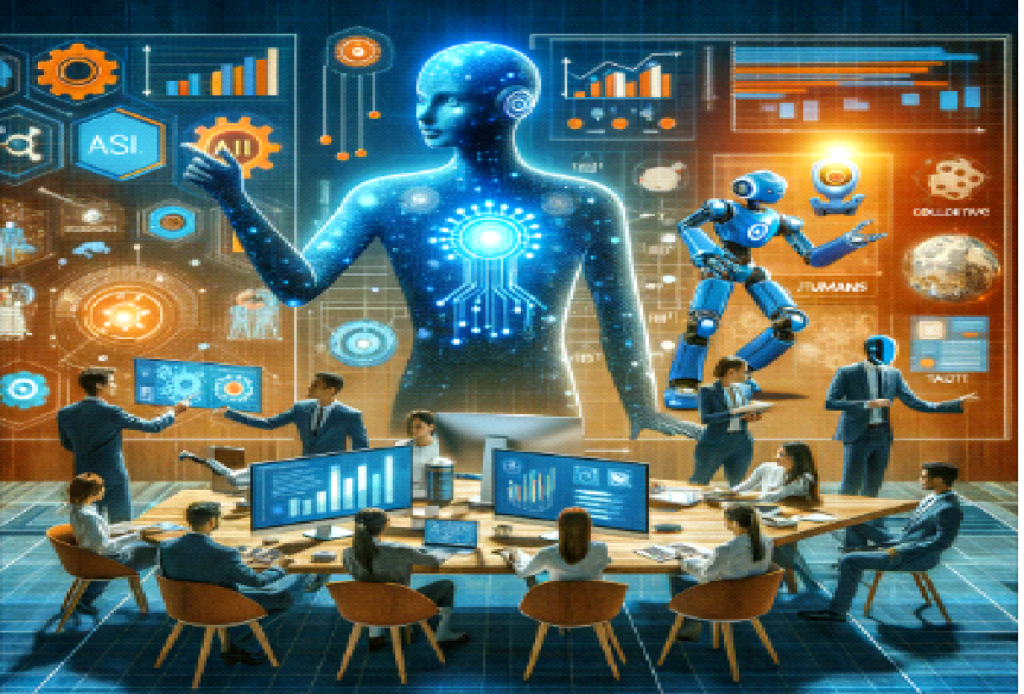
Challenges and Considerations in AI Project Management
Integrating AI in project management offers transformative benefits but also comes with its set of challenges:
- Data Privacy and Security: Ensuring the protection of data within AI systems is crucial, requiring adherence to strict regulations.
- Integration Challenges: Merging AI tools with existing systems and workflows can be complex and may necessitate adjustments.
- Bias and Fairness: AI can reflect biases from its training data, necessitating measures to ensure fair and unbiased outcomes.
- Change Management: Adapting to AI involves changes in team roles and processes, requiring effective management to ensure smooth transitions.
- Skill Gaps: Utilizing AI fully may require new skills, highlighting the need for upskilling or hiring specialized talent.
- Cost Considerations: The financial investment in AI technology must be balanced against its long-term benefits.
- Ethical and Legal Issues: The deployment of AI must navigate ethical considerations and comply with legal standards regarding its use.
The Future of AI in Project Management
The future of AI in project management is poised for remarkable growth and innovation. As AI technologies evolve, their impact on project management practices is expected to deepen, offering new levels of efficiency, precision, and strategic insight.
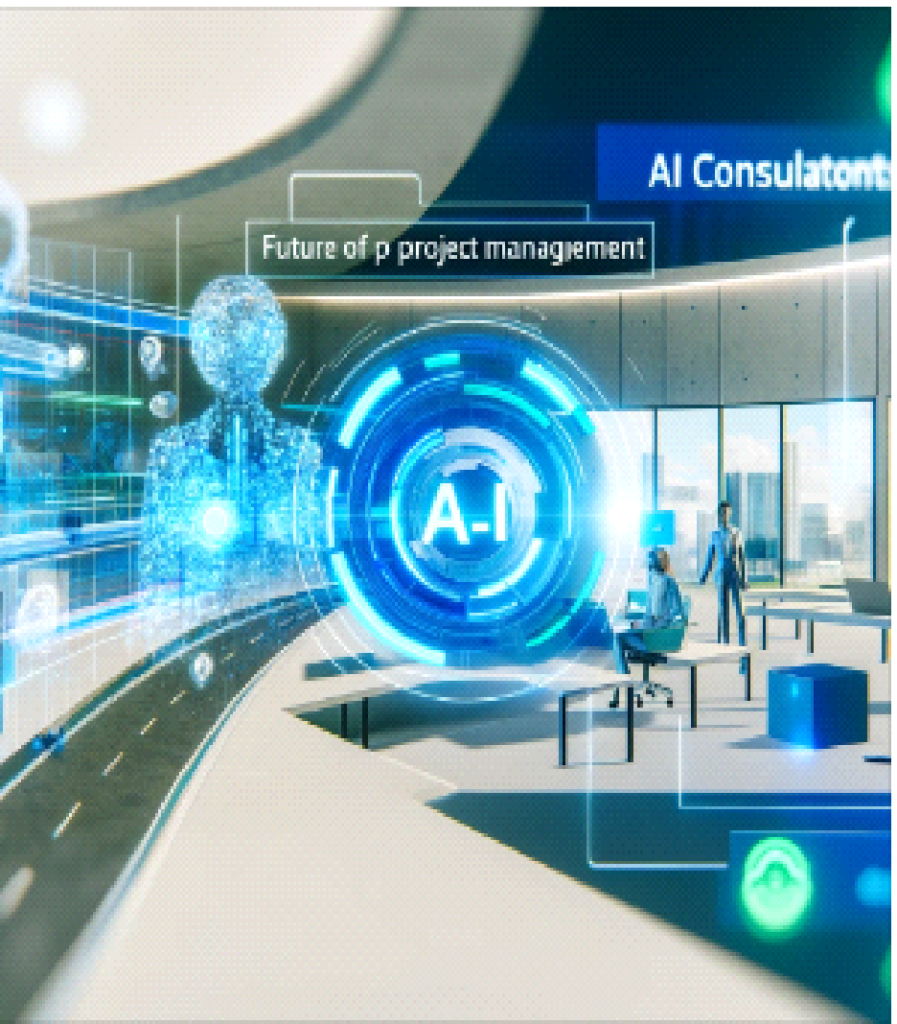
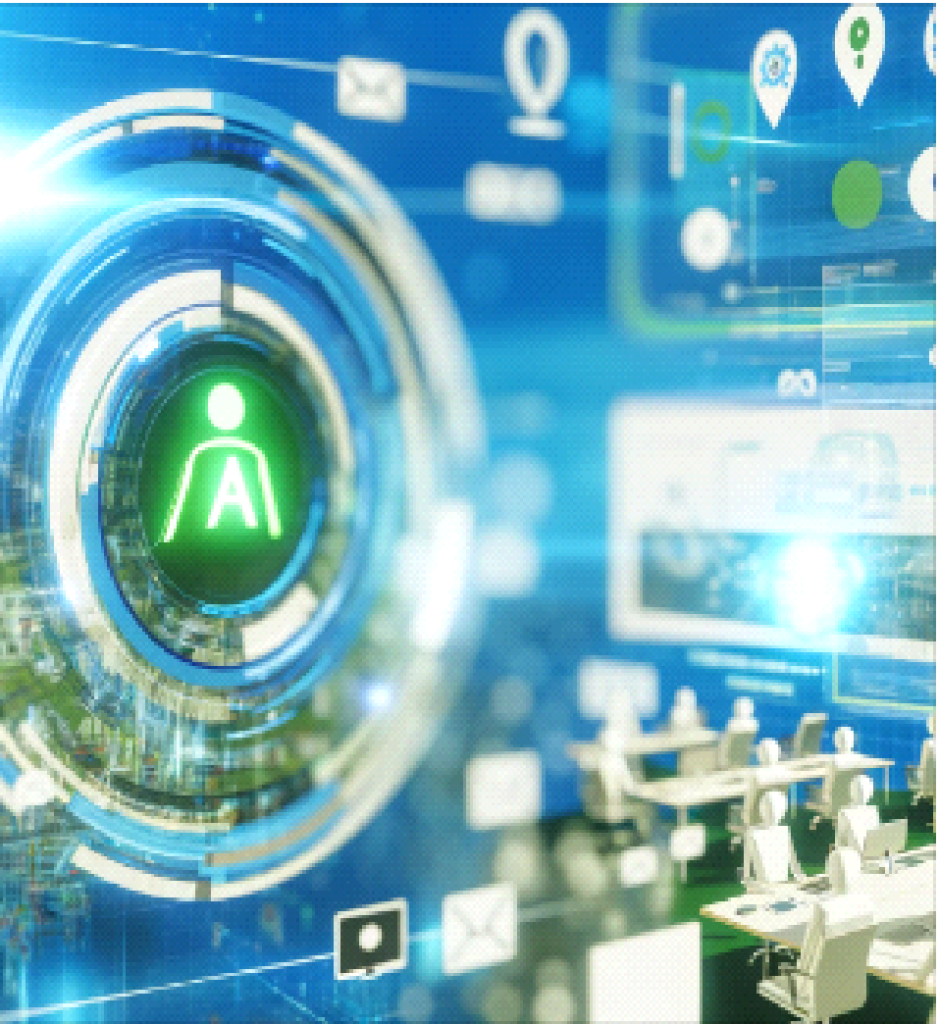
- Advanced Predictive Analytics: AI will offer even more sophisticated predictive capabilities, enabling project managers to foresee outcomes more accurately and plan accordingly.
- Enhanced Decision-Making: Future AI tools will provide richer, data-driven insights, further empowering project managers to make informed decisions quickly and effectively.
- Seamless Integration: AI will integrate more seamlessly into project management software, making AI-enhanced capabilities more accessible and user-friendly.
- Autonomous Project Management: While still in the realm of future possibilities, we may see AI systems taking on more autonomous project management functions, from planning to execution, reducing the need for human intervention.
- Ethical AI Development: As awareness of the ethical implications of AI grows, future developments will likely include more robust frameworks for ensuring AI is used responsibly and transparently in project management.
- Tailored AI Solutions: Custom AI solutions that cater to specific industry needs or project types will become more prevalent, offering tailored support to improve project success rates dramatically.
Conclusion
The emergence of AI project management is a testament to technology’s boundless potential in reshaping industries. With project management AI, leaders and teams are finding more innovative ways to navigate the complexities of their work. As we explore the synergy between AI and project management, it’s evident that artificial intelligence is not just an auxiliary aid but a fundamental pivot for innovative management strategies. Embracing AI for project management means unlocking new levels of productivity and foresight. Moreover, AI project management tools are at the forefront of this revolution, providing the necessary leverage for projects to thrive in digital transformation. As we look ahead, integrating AI within project management practices signals a move towards a more agile, intelligent, and data-driven future.
FAQs
Q: What can I expect from a generative AI overview for project managers?
A generative AI overview for project managers will equip you with knowledge about how AI can automate the generation of project artifacts, such as schedules, budgets, and risk assessments. It covers AI’s ability to learn from data and create new, optimized project management strategies that improve over time.
Q: Will AI replace project managers in the future?
While AI is transforming the project management field by automating and optimizing various tasks, it’s unlikely to replace project managers completely. Human expertise in leadership, negotiation, and strategic decision-making remains vital. AI is a tool to enhance, not replace, the human element in project management.
Q: What’s the job market like for AI project manager jobs?
The job market for AI project manager jobs is burgeoning. As more companies incorporate AI into their operations, the demand for project managers skilled in navigating AI projects is rising. These roles require combining traditional project management skills and understanding AI technologies.
Q: How does the rise of AI impact the salary of project managers?
Integrating AI into project management can increase salaries, as this specialized knowledge is in high demand. AI project manager salary often reflects the additional technical expertise required to manage AI-related projects effectively.
Q: What does generative AI mean for project management?
Generative AI for project management refers to the application of AI that can generate project-related models and simulations, offer predictive analytics, and create optimization strategies for resources and timelines, leading to more informed decision-making and efficiency.
Q: How will AI shape the future of project management?
The future of project management will likely be characterized by AI-driven analytics, greater emphasis on strategy over administration, and more agile responses to project challenges. AI will enable project managers to focus on higher-level tasks by automating routine processes.
Q: Can you explain the role of risk management AI?
Risk management AI uses artificial intelligence to predict potential project risks, evaluate their impact, and suggest mitigation strategies. This proactive approach allows for more robust risk management and helps ensure project resilience.
Q: What should I look for in AI project management software?
When selecting AI project management software, look for features like machine learning capabilities, real-time data analytics, intuitive dashboards, and the ability to integrate with existing systems. The software should enhance project visibility, control, and decision-making efficiency.
